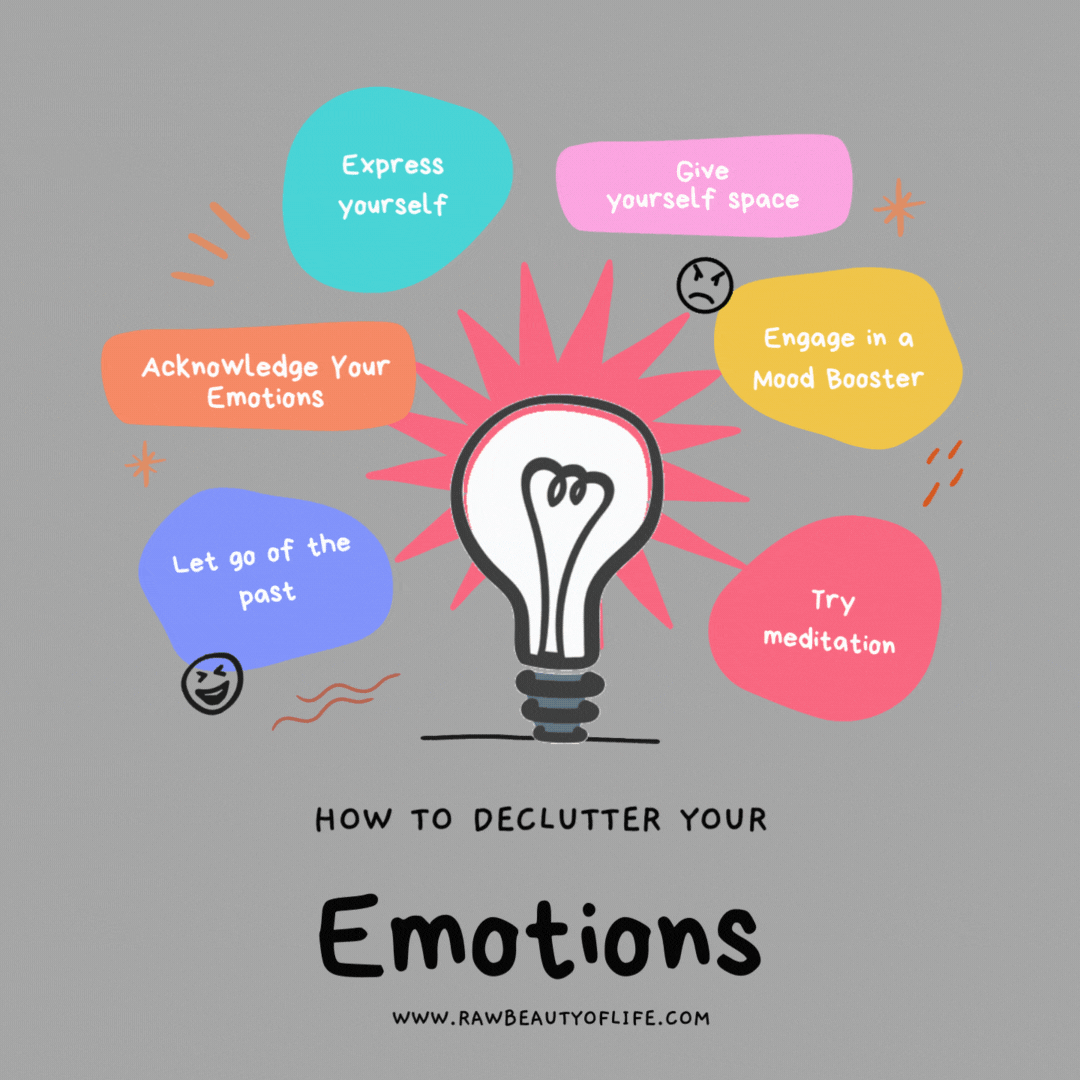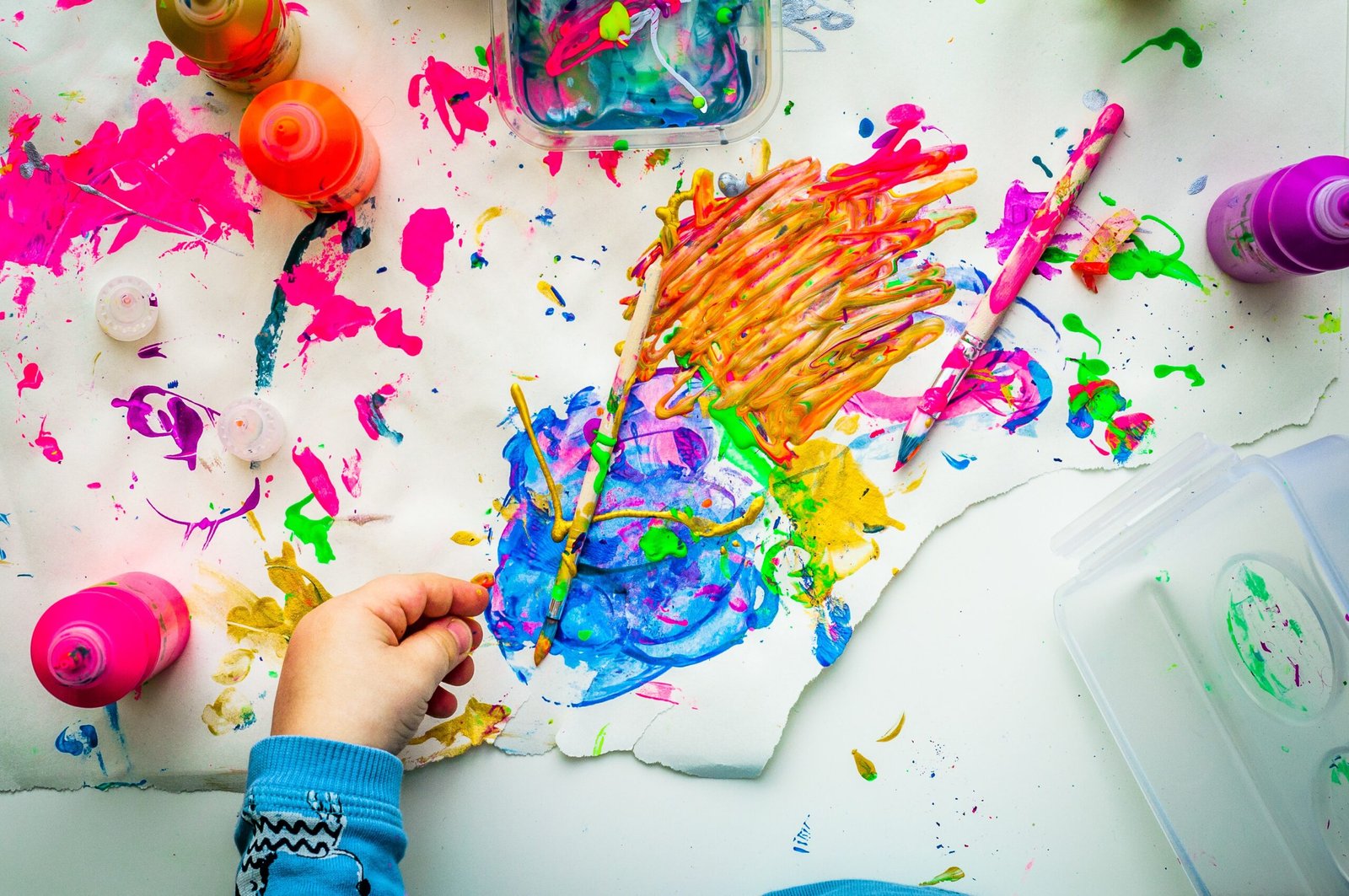In today’s fast-paced world, where our lives are cluttered with endless tasks, responsibilities, and digital distractions, the concept of “emotional declutter” has never been more relevant. Just as we regularly organize our physical spaces, decluttering our emotional landscape is crucial for maintaining mental well-being and happiness.
Understanding Emotional Clutter
Emotional clutter refers to the accumulation of unresolved feelings, past grievances, and mental chaos that weigh us down. It’s the stuff that keeps you up at night, the baggage from past relationships and the fears and worries about the future. It’s the mental noise that prevents you from enjoying the present moment.
Why to Declutter Emotionally?
Emotional decluttering helps reduce stress, enhance mood, and improve relationships. It makes room for positive experiences and thoughts. Just like a clutter-free house brings peace and order, a clutter-free mind brings tranquility and joy.
Techniques for Emotional Declutter:
1. Recognize and Acknowledge Your Emotions
Start by identifying what emotions are cluttering your mind. Are you holding onto resentment, guilt, or fear? Acknowledging these emotions is the first step towards clearing them out.
2. Practice Mindfulness and Meditation
Mindfulness and meditation are powerful tools for emotional decluttering. They help you stay present and aware, allowing you to observe your thoughts and feelings without judgment.
3. Journaling: A Powerful Decluttering Tool
Writing down your thoughts and feelings can provide clarity and perspective. Journaling is a therapeutic way to release emotional baggage and understand your inner self better.
4. Letting Go of the Past Hurts
Holding onto past hurts only adds to your emotional clutter. Practice forgiveness, not just towards others but also yourself. Remember, forgiving is not about condoning the hurtful behaviour; it’s about freeing yourself from the burden of bitterness.
5. Simplify Your Life
Simplifying your life can significantly contribute to emotional decluttering. Reduce commitments, set boundaries, and prioritize self-care. Remember, it’s okay to say no to things that don’t add value to your life.
6. Seek Professional Help if Needed
Sometimes, the emotional clutter can be too much to handle alone. In such cases, seeking help from a therapist can be beneficial. They can guide you through the process of decluttering your emotional world.
More Content to Explore
To further aid your journey in emotional decluttering, here are some related topics that you might find helpful:
- The Power of Positive Affirmations: Learn how positive affirmations can transform your mindset and reduce mental clutter.
- Building Emotional Resilience: Discover strategies to build resilience and cope with life’s challenges effectively.
- Mindfulness Techniques for Everyday Life: Practical mindfulness techniques that you can incorporate into your daily routine to stay emotionally balanced.
- The Art of Saying No: Tips on how to set healthy boundaries and say no without feeling guilty.
- Overcoming the Fear of Missing Out (FOMO): Understanding and overcoming FOMO to lead a more peaceful and focused life.
Conclusion
Emotional decluttering is not a one-time task but a continuous process. It requires patience, effort, and self-compassion. By regularly practicing emotional decluttering, you can cultivate a more peaceful mind and a joyful life. Remember, the journey to emotional clarity is unique for everyone, so find the best practices for you and embrace the journey towards a lighter, happier you.


